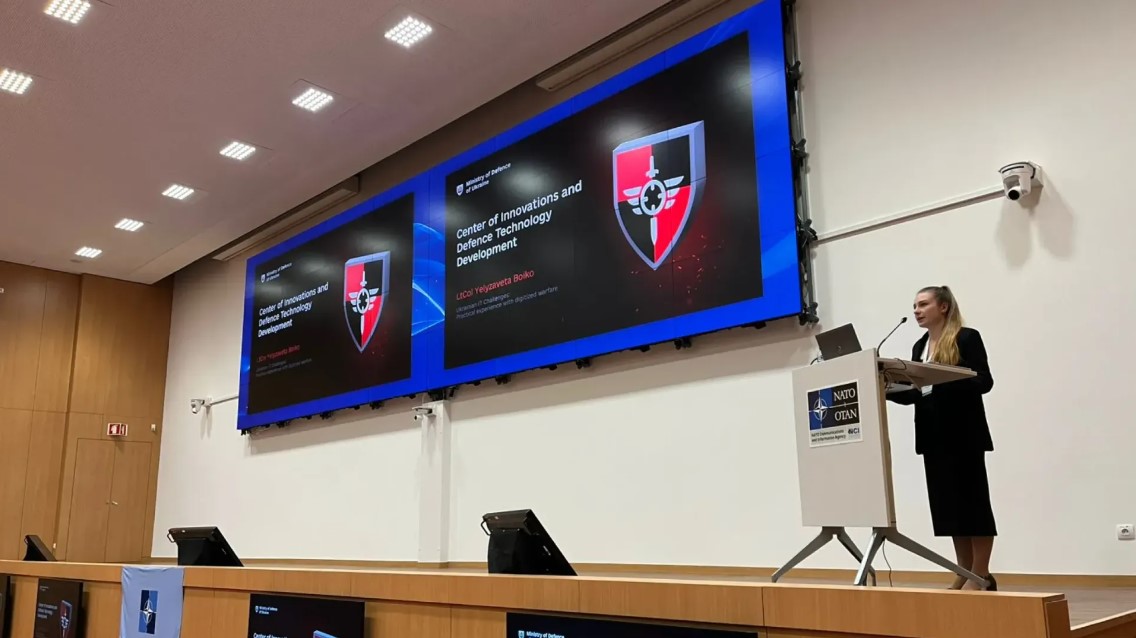The Ministry of Defense Innovation Center defended a scientific paper on artificial intelligence (AI) in combat systems at NATO ICMCIS 2025. This is the largest scientific conference on military communications and information technology systems.
Together with the Ukrainian Catholic University, the Innovation Center described in their paper how AI independently learns to process data from UAVs in real time. This technology enables effective detection and tracking of military equipment even with low-quality images from inexpensive drones, opening new horizons in tactical reconnaissance and situational awareness.
The paper demonstrated intermediate stages of technology development as of 2024. It was selected for presentation at the conference from over 90 global submissions after blind review by three independent experts and was ranked among the Top 10 works submitted to ICMCIS 2025.
Following the conference, the article will be published in the international IEEE Xplore journal — one of the most influential sources in engineering and technology. Ukraine’s participation in NATO ICMCIS 2025 was also marked by a presentation from Lieutenant Colonel Yelyzaveta Boyko of the Ministry of Defense Innovation Center. In her report, she shared practical experience in the digitalization of warfare and outlined key IT challenges on the modern battlefield.

This was the first time Ukraine presented its scientific achievements at an event of this level. Since March 1, 2025, Ukraine is officially a partner of NATO’s Science and Technology Organization (STO) within the framework of the Enhanced Science and Technology Partnership (STEP).
“The international recognition of Ukraine’s work on artificial intelligence confirms our country’s ability to develop world-class technologies. It also proves that Ukraine has enormous scientific potential that can be harnessed to strengthen the country’s defense capabilities. And people are realizing this potential right now — both within the Defense Forces and on a volunteer basis,” said Kateryna Chernohorenko, Ukraine’s Deputy Minister of Defense for Digitalization.




















